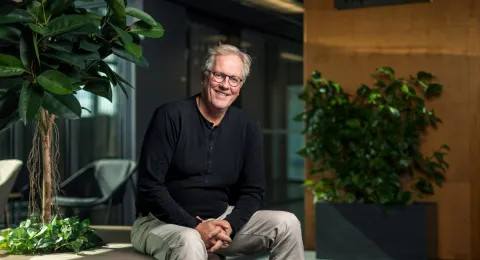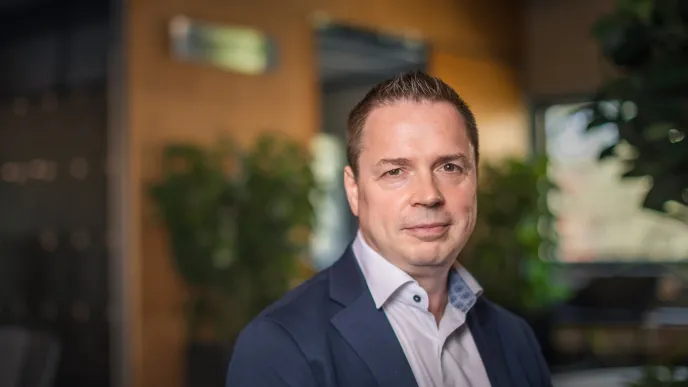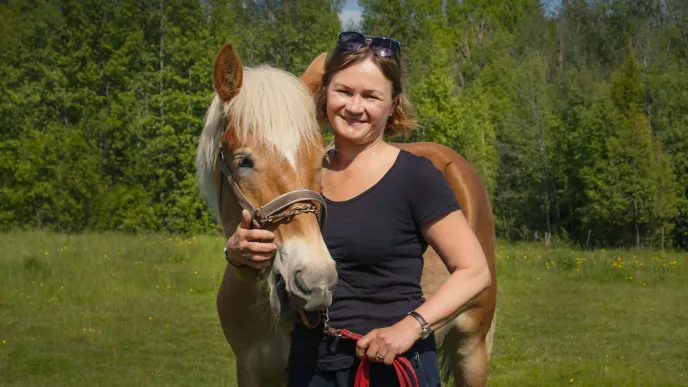Books
Karl-Erik Michelsen had already reached the bookstore doorstep when he realized that he hadn’t paid for the book he had taken. He backtracked to the checkout counter and gave the book to the cashier, who started surveying it and was struck by the sight on the pages. Words were underlined and the margins were filled with notes.
“We don't sell used books here at Akateeminen,” the cashier said.
“It's not used; that’s just how I tend to read books,” Michelsen explained and made the payment.
It was the 1990s, and the book was Paul Auster's Invention of Solitude (1982), which Michelsen had read in one sitting over a couple of hours in the bookstore's café.
The book depicts Auster's relationship with his father and the aftermath of a broken marriage in two separate stories.
LUT Business School’s Professor Emeritus Michelsen still recommends that book, because for him, it captures the experience of solitude beautifully. Auster's use of language and the incidents he describes led Michelsen to explore other works by the author. In general, the library is a place where Michelsen has felt at home since childhood.
“Author and academic Umberto Eco had presumably 30 000 books. He was once asked whether he had read them all. He replied that it's the unread books that define you, not the ones you've read.”
Michelsen has always valued information. In the past, knowledge had to be sought from books and libraries. Today, almost any piece of information is available online with just a few keystrokes. In Michelsen’s opinion, knowledge has become a disposable product; even in the academic world, a text of 25 pages is too long.
"I try to encourage students to read and question, to challenge established ways of working, to experiment with new ways of learning and teaching. All too often, new people who come to the university simply start copying what others around them are already doing. I want to believe that my legacy is different – one of questioning."
Criticism
Michelsen's academic career has spanned 40 years. His journey has taken him from a professorship at the University of Helsinki to a researcher position in the United States, and back to Finland to head the South Karelia Institute. He’s been a research fellow for the Academy of Finland, and a professor at LUT University, to name a few more examples. Michelsen was Professor of the Year in 2018, and he’s one of the 400 members of the Finnish Society of Sciences and Letters.
In September 2023, Michelsen delivered a farewell lecture to the staff of LUT Business School with the title "University of the Future."
"Emeritus sounds better than retiree. It’s got that academic ring to it."
Despite Michelsen's significant achievements that could easily earn him a prominent place on talk shows and in newspapers, he’s been selective about his public appearances over the years and doesn't feel at home on social media.
"No one on social media posts pictures of rainy days – it's always sunny," he sighs.
"Publicity erodes academic credibility. It can easily lead down a certain path, and suddenly you're invited to cooking shows on television. I'm a private person by nature, and I've wanted to keep it that way."
A few times, Michelsen has deviated from his stance. One peculiar chain of events began when director Johanna Vuoksenmaa called Michelsen and asked him to audition for the TV series "Ex-Onnelliset" (The Formerly Happy).
"I wondered why, as I'm not an actor. In Vuoksenmaa's opinion, I was the perfect person to play the dean who had to fire an employee. So, I went to the auditions, passed, and ended up in the series for less than a minute. I believe it was in the third season," Michelsen recalls.
Michelsen chuckles and admits that he doesn't always know how to say no, "even when maybe I should." He recently lectured to 500 students during orientation week about how the academic world is a critical one.
"Not negative, but critical and questioning, and everything is constantly evaluated. The university must protect its autonomy. People are hired here based on their research, not because of their social media visibility. The university is no place for 'likes'."
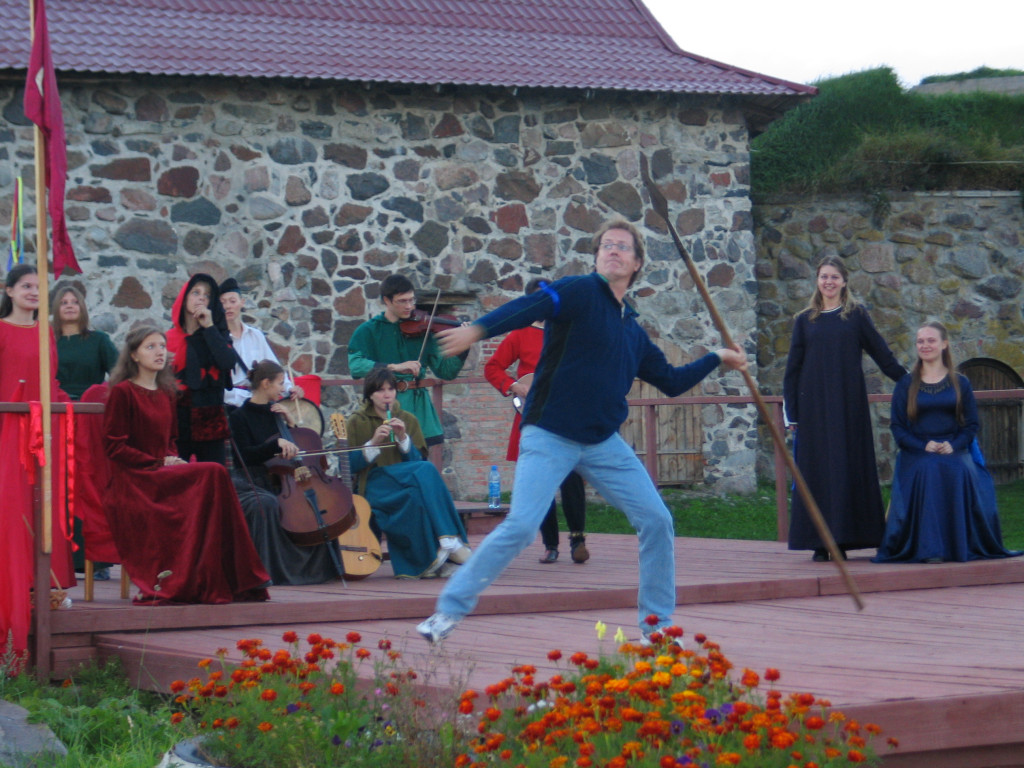
Ambition
In 1984, at the Helsinki University Library, Karl-Erik Michelsen stumbled upon the book Networks of Power (1983) by Thomas P. Hughes, a professor at the University of Pennsylvania. Michelsen read the book cover to cover on the spot. He was so enthralled by Hughes' work that he dug up information about the University of Pennsylvania and wrote to Hughes, asking for advice on what he should research next.
Two months later, he received a response; Hughes offered Michelsen a place on his new research team. Thus, Michelsen left for the United States with the support of an Asla Fulbright scholarship. His departure was also influenced by a family tragedy, but we'll get to that later.
The years spent in the USA in the 1980s were a tough time for Michelsen. According to him, there's no room for error in the North American culture.
"Although I did well there. I quickly embraced the culture and academic English. I understood that I had to up my game significantly because the expectations were so high. But I never wanted to get off easy. The tougher the spot, the better for me."
Hughes suggested that Michelsen should study innovation systems. According to Hughes, they were the future—how society as a system produces and manages information and how innovations are at the heart of all that. Michelsen became interested in the subject and has built much of his academic career around innovation research.
"I'm a generalist, and in that sense, I'm a bit of a misfit in the academic world because it’s a world that favors specialists.
Most researchers around me have specialized in a very narrow segment of their field. My focus on the bigger picture has sometimes been frustrating in discussions, but at the same time, I have to admire the dedication with which my colleagues delve into their own areas.”
Michelsen grasped the big picture also when he wrote a book on the 100-year history of the Kone Corporation. He spent about seven years on the work titled Kone: perhe, yrittäjyys ja yritys teollisuuden vuosisadalla (Kone: family, entrepreneurship, and a company in the century of industry), published in 2013. The book spans 640 pages and received generally favorable reviews.
Michelsen took on the task of writing the chronicle because Ilkka Herlin, a member of the Kone family and a long-time friend, approached him.
"Ilkka just called me up one day, and we discussed, among other things, how in the United States, back in the 1990s, people's identities shattered under extreme competition. We're seeing a similar trend in Finland now," Michelsen says.
Talouselämä magazine wrote in October 2013 that Professor Karl-Erik Michelsen's chronicle of Kone makes you wonder if things weren't better in the past. The magazine reported that "Kone spent 15–18 million Finnish marks annually on building a sense of community – almost as much as it invested in machinery and equipment. The lavish employee benefits, including extra child allowances, food aid, and housing support, reduced profits by an average of five percent of the company's turnover."
So, was everything better in the past?
"Yes and no. In terms of values, yes. Values were what guided people and prevented them from making foolish decisions. I think there's something valuable about maintaining traditions. Today’s embracing mentality doesn't really suit people. Students are burdened by expectations, and in the abundance of opportunities, they’re having trouble finding their own path. It’s tempting to give in to endless change even though constancy brings stability," Michelsen responds.
Michelsen finds the Herlin family's dedication to the continuation of the family business fascinating.
"Some might call it sacrifice – sacrificing one's own dreams for the sake of continuity. It can also be seen as wisdom to choose one's own path instead of meeting expectations. For me, historical continuity has always been and still is important."
Death
Michelsen's mother had chestnut-brown, naturally curly hair. It turned gray in just three weeks when the youngest of her three sons unexpectedly died at the age of 17. At that time, Kalle Michelsen himself was only 23 years old.
His brother's death tore the family apart. The parents divorced, and the relationship between the surviving brothers was strained.
"My father never spoke a word about my brother's death. It wasn’t easy to talk to my older brother either. At that time, there was no such thing as trauma therapy. We tried to carry on as if nothing had happened, even though everything was different."
Michelsen's mother felt broken and crushed after her son's death. Michelsen found the whole situation so distressing that he fled to the United States for several years. The 6,000 kilometer distance from home seemed necessary at the time.
"My mother's well-being was a key reason for my return to Finland. She never fully recovered from my brother's death, and neither did I, really."
According to Michelsen's friends, his brother's death changed him. Living in the present became important, and he has feared loss ever since. The awareness of the possibility of death left its mark on Michelsen's relationships, including romantic ones.
"I don't believe in anarchy – living as if there were no tomorrow. But I can't trust that there will be a tomorrow. You must seize opportunities, and not postpone them to a distant future that may never come."
Even to this day, Michelsen may startle when his phone beeps with the arrival of a message. What if something has happened to his children?
"Finding joy in non-materialistic things and spirituality has helped me. I converted to Orthodox Christianity partly influenced by relatives. What attracts me to this religion is that the Orthodox church has not changed in 2,000 years. Stability and continuity are important to me in a historical sense."
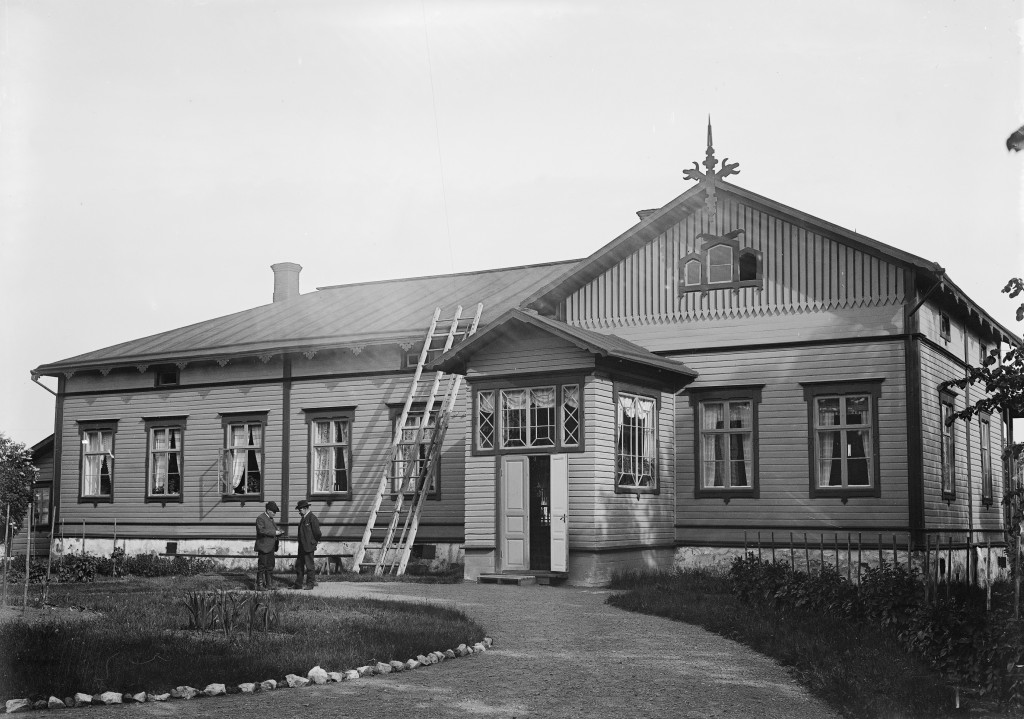
Photo: Signe Brander
Country house
A 400 square meter building, a ceiling height of four meters, a linden tree avenue, and 11 smaller buildings in addition to the main house.
When Michelsen's aunt died of a brain hemorrhage in the grand hall of the country house in 2007, Michelsen had to decide quickly whether to accept the inheritance.
"I couldn't break the continuity. My family has lived in the Stendal house since 1931. You can kind of feel the presence of past generations in the rooms. It's important for me to maintain that spiritual connection.
My sons have announced that the country house will remain in the family even after me. I’m glad the continuity won’t stop there – I already have grandchildren."
The country house is located in Joroinen, often referred to as the Paris of the Savo region, and Michelsen has his own community there, which gradually formed when craftsmen were renovating the heritage building. Nowadays, Michelsen finds it difficult to make a quick visit to the village without getting sucked into conversations with friends and acquaintances.
The house has been restored little by little, with an emphasis on uncovering the old elements hidden beneath the renovations done in the 1960s. The building is considered cultural heritage and is thus protected by the Finnish Heritage Agency, but only from the outside, which has made the restoration somewhat easier than it would have been otherwise. Nevertheless, the building has needed a great deal of work, and plenty remains to be done.
There is no mistress of the manor yet, even though the nearly two-meter tall Michelsen is a former male model and professional athlete, cultured, a good conversationalist, and career-driven.
"I don't think I represent security and stability. I can be quite a difficult person. I have a passion for moving forward, and the traditional concept of a relationship doesn't really fit my mentality. Even so, I haven't done anything bad to anyone, and I've managed with relatively minor damages."
Soon
Now, the fingers of the former journalist are itching to write something again. Michelsen has authored 10 non-fiction books during his career, but a new book may not necessarily be in the works. Perhaps something else, though. He also has a few research papers waiting to be finalized.
"The biggest change will be a shift in rhythm. My children thought they can't call me before 10 a.m., but this morning, I went for a swim at six."
In addition to his sons, Michelsen finds joy in his grandchildren.
"They’re so full of energy. I've always had too much energy myself. My mother used to call me a hopeless child; I didn't sleep – day or night. I'm a bit like that Asterix comic book character, Obelix, who fell into the cauldron of magic potion as a child. To this day, I don't sleep much. I'm incredibly curious, always heading towards new adventures."
In conclusion, Michelsen is a typical modern retiree, as his enthusiasm seems to burn as bright as the Mediterranean cliffside.
"When you find yourself spending your days sitting on the benches at the supermarket, you know you've become old," Michelsen grins.
So, let’s not put him on that bench just yet.
Fact: Karl-Erik Michelsen
- Born in 1957 in Ähtäri
- Lives in Helsinki and Joroinen
- Three adult sons and two grandsons
- Master of Arts degree from 1984, Licentiate of Philosophy degree from 1993, and Doctor of Philosophy degree from 1993 (Finnish history) from the University of Helsinki
- Master of Arts degree from 1988 (Science and Technology Sociology) from the University of Pennsylvania
- Professor at LUT University since 1993
- Has held other positions, including Project Manager at the Academy of Finland from 2000 to 2003, Research Coordinator at the Academy of Finland from 1997 to 1999, Assistant Professor at the Department of History at the University of Helsinki from 1995 to 1996, Docent (Finnish history) at the University of Helsinki since 1993, Junior Researcher at METLA from 1991 to 1994, Assistant at the University of Pennsylvania in 1988, and Assistant at the Department of History at the University of Helsinki from 1984 to 1985 and from 1988 to 1990
- Has received several recognitions and awards, including Professor of the Year in 2018, the Suomen ekonomit literary award in 2014, the Recognition Award from the Friends of History Society in 2014, the Silver Merit Badge from the Society for the History of Technology, and the Award for Outstanding Research from the Finnish Society of Electronics Engineers in 2002
- Former professional basketball player and for the team Joensuun Kataja from 1976 to 1977 season and for HNMKY from 1977 to 1982
- Hobbies include thinking, reading, renovating his estate, swimming, and occasionally playing basketball
Some quotes about Kalle Michelsen:
Juha Väätänen, professor, LUT Business School:
"Kalle is not only an academic but also a true sportsman, especially a basketball enthusiast. We’ve often had discussions about individual athletes, teams, and sports management. Kalle has a wealth of experience and knowledge. His expertise has even been used in the development of high-performance sports in Finland.
What's so great is that Kalle's connection to sports has remained strong even after his active basketball career. Team athletes probably have their own DNA, which shows as a natural ability for teamwork and for selflessly sticking to their role in the organization."
Mikael Collan, professor, LUT Business School; director-general, VATT Institute for Economic Research:
"Kalle focuses on the big picture and can place the current wave of nonsensical chatter into a historical perspective. Kalle's fearless straightforwardness and honesty in expressing his views have sometimes led to difficulties. But where there has been conflict, there has also been insight and earned respect."
Kalle is the other LUT member primarily consisting of people from Helsinki in the Finnish Society of Sciences and Letters. Kalle firmly keeps alive the rumor that there might be intellectual life outside the capital of Finland as well."

